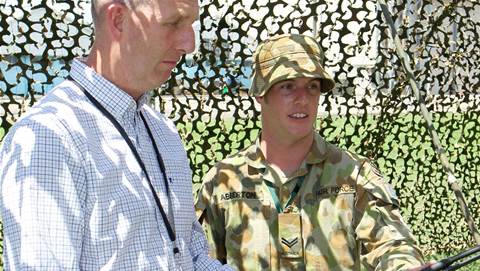More than 7,000 attendees representing 96 countries were told unequivocally that the server hugger is dead at EMC's eighth annual conference in Orlando.
"What's hot? VMware is hot. VMware is very hot," said the company's President and CEO Joe Tucci in his opening keynote.
Tucci highlighted the virtual data centre, cloud computing, virtual clients and virtual applications as major trends in the IT industry.
EMC's devotion to cloud computing and virtualisation has blossomed since its US$635m purchase of VMware in December 2003.
Last month, it introduced the Symmetrix V-Max storage system that was purpose-built for the virtual datacentre.
In November, it launched Atmos, which is an information management platform that allows global enterprises to distribute and manage information across multiple locations.
And in mid-2009, EMC will launch a new Web-based cloud storage service dubbed Atmos onLine. Built on the Atmos platform, Atmos onLine will provide hosted, on-demand storage on a pay-per-use basis.
"The three key elements of our future is going to be virtualisation, infrastructure, and information security," Tucci said.
Chuck Hollis, EMC's VP and Global Marketing CTO, likened cloud computing to outsourcing, and said it would take IT managers out of the "maintenance and plumbing business."
But for a technology that has attracted such optimism and investment, cloud computing is, as yet, hazily defined. Hollis said he did not expect mainstream adoption of enterprise cloud computing for "many years."
Last month, Citrix's senior vice president and the chief marketing officer, Wes Wasson, told iTnews that it would take a year and a half for the industry to clearly define cloud computing.
Citrix characterises cloud computing by its ability to offer flexible, automated, low-cost datacentre services, and a pay-as-you-go business model.
To EMC's Hollis, cloud computing means the provision of a "dynamic, elastic resource" that allows end-users to choose their own tools and delivery method.
"The cloud is half technology, and half operational model," he told iTnews.
"One of the benefits of the cloud is that you'll never have to talk to an IT guy; users get what they want in a dynamic way.
Hollis said he expects success in the cloud to be "less about technology and more about trust."
"The question is, which companies will build trust first."?


_(23).jpg&h=140&w=231&c=1&s=0)
_(20).jpg&h=140&w=231&c=1&s=0)

.png&h=140&w=231&c=1&s=0)



_(26).jpg&w=100&c=1&s=0)

 iTnews Executive Retreat - Security Leaders Edition
iTnews Executive Retreat - Security Leaders Edition












_(1).jpg&h=140&w=231&c=1&s=0)



